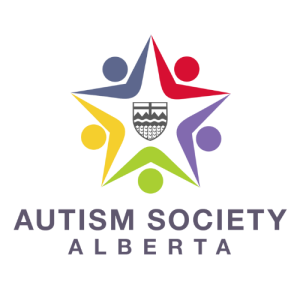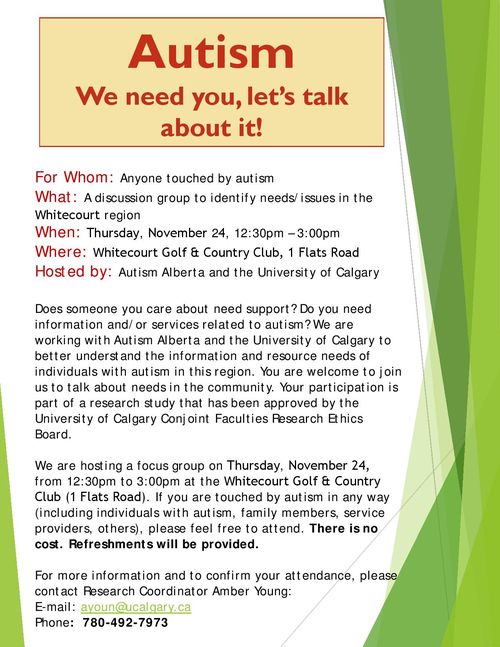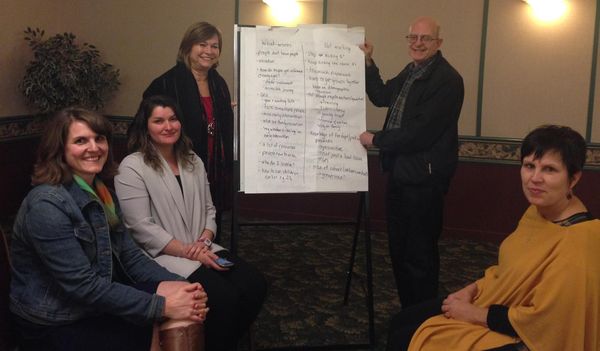Autism Families Looking For Jobs in Smaller Centres
 In a medium-to-large city, you can likely find support when looking for a job for your family member with autism. There are organizations in the larger centres that have programs and services to facilitate job placement support for those with autism.
In a medium-to-large city, you can likely find support when looking for a job for your family member with autism. There are organizations in the larger centres that have programs and services to facilitate job placement support for those with autism.
-
Do your research on the place you will approach. Are they in the public or private sector? What products or services do they provide? Perhaps someone has recommended them, or you read a story or blog about them, or you know a family member or friend of theirs. Find out as much as you can ahead of time.
-
Get in the door – literally. Do it in person, not by phone or e-mail. I do not make appointments for first contact unless I can’t reach them any other way. I walk in off the street and ask if I can speak to their Human Resources Manager (or, if a smaller business, their manager or owner). They might ask my name or whether I have an appointment. I do not hesitate to give them my first and last name and a smile. If asked, I usually state in a friendly manner that I do not have an appointment, and that I just took a chance that I might catch them free. Occasionally, though not often, they might ask me, “Can I tell her what it’s about?” I usually answer that I’d like to speak to them about my son. I’ve so far never been asked any more detail than that. At this point the person I’m seeking is available and I go in, or they aren’t, and I thank reception and say I’ll try back some other time (which I try to do two or three times). Sometimes the receptionist will give we a clue when the person I’m looking for will be available.
-
Consider the first contact a conversation, not a job ask. Once I’m with the person I was looking to speak to, this is where I introduce myself and tell our story (a condensed version). I tell about Eric, his age, his autism challenges and skills, a little about our family, and where Eric needs to go from here. I am open, enthusiastic and earnest when speaking. Within a few minutes I can tell by the person’s face and body language whether they find this all interesting, or if they’re thinking “Nope, this isn’t for us.” Near the end, after they’ve heard about what Eric CAN do, I ask them if they think there are any tasks or a niche in their building that Eric might fill, and would they consider trying him out for work experience at first.
 The bottom line, I have found, is that you can’t be shy to get out there and start the conversations. That may be easy for me to say since I am not shy, and in fact do public speaking on autism. However, that skill of speaking opened up to me because of advocating for my son. This is a skill we all need to practice and get better at, whether you are advocating for a family member or you are autistic and speaking for yourself.
The bottom line, I have found, is that you can’t be shy to get out there and start the conversations. That may be easy for me to say since I am not shy, and in fact do public speaking on autism. However, that skill of speaking opened up to me because of advocating for my son. This is a skill we all need to practice and get better at, whether you are advocating for a family member or you are autistic and speaking for yourself.If You’re in the Whitecourt Region, Let’s Talk About Autism!
Click the picture below to download the full-sized poster
Rural and Remote Communities Meeting Held in Westlock
 Autism Alberta, together with the University of Calgary and University of British Columbia, is participating in a study looking at the needs of rural, remote and northern communities. To do this, focus groups have been set up in selected communities to try to understand what is needed by individuals and families in these rural and remote regions.
Autism Alberta, together with the University of Calgary and University of British Columbia, is participating in a study looking at the needs of rural, remote and northern communities. To do this, focus groups have been set up in selected communities to try to understand what is needed by individuals and families in these rural and remote regions.
Introducing Autism Alberta Alliance
 If you are a person with autism, or have a child with autism who is 20 or younger, you’ve probably had services including ABA-based treatments since diagnosis. It wasn’t always like that. My son is 28. When he was diagnosed those services were not available in Alberta. To get them, families paid tens of thousands of dollars out of their own pockets, or they went without.
If you are a person with autism, or have a child with autism who is 20 or younger, you’ve probably had services including ABA-based treatments since diagnosis. It wasn’t always like that. My son is 28. When he was diagnosed those services were not available in Alberta. To get them, families paid tens of thousands of dollars out of their own pockets, or they went without. This happens with recommendations that are the outcome of lengthy research. It also happens to programs that have been thoughtfully developed, by parents, but also by other entities, like school boards or governments.
This happens with recommendations that are the outcome of lengthy research. It also happens to programs that have been thoughtfully developed, by parents, but also by other entities, like school boards or governments. already formed and is reviewing evidence based practices and services offered to children in Alberta. The Act Now for Adults with Autism committee has been active for many years and is working to put in place a provincial and national strategy for adults with autism. In the works is an Adult Supported Employment committee. Autism Alberta has also funded a study looking into who takes care of our kids when we are gone. That study will be completed by the end of this year, and the committee will look into ways of moving the study forward to put into place a way of making sure our children and adult children will have good and meaningful lives when we are no longer here to ensure that happens. All committees will be action-driven and will work in collaborative partnerships with other community stakeholders. Stay tuned as Autism Alberta moves forward with this ambitious agenda!
already formed and is reviewing evidence based practices and services offered to children in Alberta. The Act Now for Adults with Autism committee has been active for many years and is working to put in place a provincial and national strategy for adults with autism. In the works is an Adult Supported Employment committee. Autism Alberta has also funded a study looking into who takes care of our kids when we are gone. That study will be completed by the end of this year, and the committee will look into ways of moving the study forward to put into place a way of making sure our children and adult children will have good and meaningful lives when we are no longer here to ensure that happens. All committees will be action-driven and will work in collaborative partnerships with other community stakeholders. Stay tuned as Autism Alberta moves forward with this ambitious agenda!Jeff’s Marathon Journey – October Update
 All is well on the home front since my last writing. Ben is settled back into his school routine, and seems to be genuinely enjoying it. He has continued to build his vocabulary and is increasingly using verbalizations to make requests. Yeunsuk and I were discussing this a couple of days ago, thinking back to as early as six months ago when we were having conversations questioning if we would ever hear him speak. I have to admit, there were times when I was doubtful it would ever happen, and now that it has it feels kind of surreal. It’s different than I thought it would be – I had heard stories of other kids on the spectrum who went from completely non-verbal to suddenly blurting out entire sentences in a matter of days. Other stories were more akin to typical learning: complete words here and there, with babbling added, then more words, and so on. With Ben, the best way I can describe it is a “slow bubbling” of conversation to the surface. He isn’t really saying any words perfectly and consistently yet, but he is trying to say every word with vicious intent. He will vocalize the first syllable of any word with prompting (word approximations, I think they call it?), and will do the same for anything he desires without prompting. Probably the most surprising aspect of all this is his reading skills (yes, he can almost read). We’ve long known that Ben learned and recognized all letters (both English and Korean alphabets) and every number from 1 to 100 long before his second birthday. A game that we’ve played with him for a long time is to point to random letters or numbers and call them something they are not just to get his reaction. It’s surreal to now hear him verbalize each letter and number without hesitation, and giggle uncontrollably while shaking his head “no” when we try and trick him. “Look, Ben,” we’d say, while pointing at the number 47. “It’s the number 27!” Ben would throw his head back and laugh. “Silly Dad!”
All is well on the home front since my last writing. Ben is settled back into his school routine, and seems to be genuinely enjoying it. He has continued to build his vocabulary and is increasingly using verbalizations to make requests. Yeunsuk and I were discussing this a couple of days ago, thinking back to as early as six months ago when we were having conversations questioning if we would ever hear him speak. I have to admit, there were times when I was doubtful it would ever happen, and now that it has it feels kind of surreal. It’s different than I thought it would be – I had heard stories of other kids on the spectrum who went from completely non-verbal to suddenly blurting out entire sentences in a matter of days. Other stories were more akin to typical learning: complete words here and there, with babbling added, then more words, and so on. With Ben, the best way I can describe it is a “slow bubbling” of conversation to the surface. He isn’t really saying any words perfectly and consistently yet, but he is trying to say every word with vicious intent. He will vocalize the first syllable of any word with prompting (word approximations, I think they call it?), and will do the same for anything he desires without prompting. Probably the most surprising aspect of all this is his reading skills (yes, he can almost read). We’ve long known that Ben learned and recognized all letters (both English and Korean alphabets) and every number from 1 to 100 long before his second birthday. A game that we’ve played with him for a long time is to point to random letters or numbers and call them something they are not just to get his reaction. It’s surreal to now hear him verbalize each letter and number without hesitation, and giggle uncontrollably while shaking his head “no” when we try and trick him. “Look, Ben,” we’d say, while pointing at the number 47. “It’s the number 27!” Ben would throw his head back and laugh. “Silly Dad!” As for the marathon training, it’s now all but done, and to steal a clichéd expression from the running world, “the hay is in the barn”. I peaked in my training program last week, running 35km on Saturday morning at a pace that was slightly faster than my goal marathon pace (5:57/km as opposed to the 6:00 that I hope to run). It felt good to get that one done for a few different reasons. First, it felt great knowing that the next three weeks would bring shorter distances as I worked through the taper portion of the program – I never thought I would think of a 21km run as a “shorter” run, but that was all I had to do the following week and it felt great! Secondly, I was forced to run the 35km on the 200m indoor track at the local fitness center, as we had received a huge dump of snow during the previous week. As I posted on my Facebook page following the run, I really felt that 35km on an indoor track presented a much greater mental challenge than anything that will be thrown my way in NYC.
As for the marathon training, it’s now all but done, and to steal a clichéd expression from the running world, “the hay is in the barn”. I peaked in my training program last week, running 35km on Saturday morning at a pace that was slightly faster than my goal marathon pace (5:57/km as opposed to the 6:00 that I hope to run). It felt good to get that one done for a few different reasons. First, it felt great knowing that the next three weeks would bring shorter distances as I worked through the taper portion of the program – I never thought I would think of a 21km run as a “shorter” run, but that was all I had to do the following week and it felt great! Secondly, I was forced to run the 35km on the 200m indoor track at the local fitness center, as we had received a huge dump of snow during the previous week. As I posted on my Facebook page following the run, I really felt that 35km on an indoor track presented a much greater mental challenge than anything that will be thrown my way in NYC.
There is still time to donate before Jeff’s big’s day – click here to help! All funds raised will go to the Fort McMurray Autism Support Group.
We Want to Hear From You!
Setting Goals, Training and Achieving
 I set goals for Conor every year: goals for school, FSCD, and therapists. This year I also set some personal goals for myself. Not New Year’s resolutions, because I never stick to them, but SMART goals (Specific, Measurable, Achievable in a Realistic Time period). I picked the Melissa’s 10 km run in Banff as my main goal for the year. I have wanted to do this race for many years, but I did not feel comfortable leaving Conor until now.
I set goals for Conor every year: goals for school, FSCD, and therapists. This year I also set some personal goals for myself. Not New Year’s resolutions, because I never stick to them, but SMART goals (Specific, Measurable, Achievable in a Realistic Time period). I picked the Melissa’s 10 km run in Banff as my main goal for the year. I have wanted to do this race for many years, but I did not feel comfortable leaving Conor until now. Conor’s supporters along our journey are family, friends, teachers and therapists who cheer him on and want him to succeed and cross that finish line so he can ‘sign up’ for the next race! I want to say a huge thank you to all our supporters – without you we would not have achieved so much. You inspire us to keep going even when things are tough.
Conor’s supporters along our journey are family, friends, teachers and therapists who cheer him on and want him to succeed and cross that finish line so he can ‘sign up’ for the next race! I want to say a huge thank you to all our supporters – without you we would not have achieved so much. You inspire us to keep going even when things are tough.Delivery business that hires people with disabilities going strong after 4 years.
Four years after launching Anthony at Your Service, Anthony Barrett and his support worker, Mikey Hamm, have their routine down to a science: Get ready, pick up supplies, drop them off.
“He’s a goal-oriented guy, so he loves finishing up a delivery,” Hamm says of Barrett, who has autism and is non verbal.
“You can see him creating a checklist in his head, and this job really works well for him. It has all these little discrete goals.”
Barrett and his mom, Deborah, started the business because it combined a lot of his favourite things – travelling around the city, seeing new places and helping people.

Support worker Mikey Hamm and Anthony Barrett are one of 15 teams currently working for delivery company Anthony at Your Service.
But then word spread and demand grew. Deborah hired another delivery person – giving the job to a person with an intellectual disability – then another.
The company now employs 15 people with intellectual disabilities who take flowers, businesses supplies and fliers across the city – and make more than minimum wage for doing so.
“Our folks love doing our deliveries, so this is not a case of ‘I’ll do this job until I get something better.’ This is the job they want to do,” Deborah said.
“And we give them visible, valuable, meaningful work.”
One of the company’s biggest customers is Elm Catering, whose District Cafe is the target of a cash mob Wednesday afternoon.
The Gateway Association, a local non-profit that works with people with disabilities, is hosting the mob, the latest in a series its held at inclusive employers in Edmonton for the last couple of years.
Why The Eyes?
I want to believe I can control my own actions, but when I’m having a conversation with someone, it’s almost like I go into autopilot. I sometimes feel like I’m sitting back and observing someone else (who’s actually me) conversing with another person. Afterward, when I’m on my own, I think about what I should have said differently, and I wonder why I didn’t make eye contact. What a silly, irrational thing – after all, they’re just eyes! What harm could there be in looking at two round pieces of tissue?

I did a Google search to find possible reasons for this, and found various reader-submitted responses in an article at The Mighty. The people with autism who responded gave different reasons, and some resonate with me more than others. But I certainly can’t completely disagree with the person who said that "it just feels yucky" – It really does.
Whatever the reason, I still feel like this is something I need to overcome to live more peaceably among the neurotypicals, if I ever can. I’ve even thought of writing "MAKE EYE CONTACT" on sticky notes and sticking them in places where I will often look, adding the phrase to my computer’s wallpaper, or just repeating it to myself like a mantra. Maybe sheer repetition would eventually make eye contact second nature to me during the times when I become the observer of my own conversations. I haven’t gotten around to trying this yet – on some level, it just feels too silly – and I have no idea whether it would work. I don’t know if any amount of practice or repetition can help me get over the sheer ickiness of looking another human being directly in the eye. But if you ever engage me in conversation and I seem reluctant to look straight at you, just know that it’s not personal. It feels a little yucky with everyone – not just with you.
Autism Canada News

On October 17 and 18, Autism Canada hosted a wonderful meeting in Toronto with Autism Alberta, Autism Calgary, Autism Edmonton, and the other members of the Provincial and Territorial Council. The meeting was a great success, with all agreeing on moving forward with a national campaign for Autism Awareness Day, April 2. The meeting featured guest speakers and lots of networking.
Selective Mutism
 I am often mistaken for deaf. This does not offend me – far from it. There is no shame in an innocent, well-meaning misunderstanding. To be honest, I quite understand the confusion. I am generally mistaken for deaf due to the longstanding association between deafness and mutism, a conflation which is understandable, albeit lacking in nuance.
I am often mistaken for deaf. This does not offend me – far from it. There is no shame in an innocent, well-meaning misunderstanding. To be honest, I quite understand the confusion. I am generally mistaken for deaf due to the longstanding association between deafness and mutism, a conflation which is understandable, albeit lacking in nuance. quick to accommodate, but with certain tells that demonstrate that they have not quite understood the situation. For instance, I recently took a flight where I spent most of the time in the air listening to an audiobook via headphones. When I answered one flight attendant’s questions through signs and typed messages on my smartphone, she responded in kind through writing, gestures, and, bizarrely, mouthing words rather than simply speaking at a normal volume. There was, after all, no need for the choice of orange juice or coffee to remain strictly confidential. Still, it was certainly a step up from those who simply yell “EXCUSE ME, ARE YOU DEAF?” a little louder the second time, just to be absolutely certain.
quick to accommodate, but with certain tells that demonstrate that they have not quite understood the situation. For instance, I recently took a flight where I spent most of the time in the air listening to an audiobook via headphones. When I answered one flight attendant’s questions through signs and typed messages on my smartphone, she responded in kind through writing, gestures, and, bizarrely, mouthing words rather than simply speaking at a normal volume. There was, after all, no need for the choice of orange juice or coffee to remain strictly confidential. Still, it was certainly a step up from those who simply yell “EXCUSE ME, ARE YOU DEAF?” a little louder the second time, just to be absolutely certain.Autism Europe Conference Highlights, News, and More
 The conference venue, the Edinburgh International Conference Centre, was honoured with an Autism Friendly Award at the event, after the venue made changes to increase its accessibility and provided awareness sessions for staff. It is only the second building in Edinburgh to achieve the Award; the first was granted to Scottish Parliament in May 2015.
The conference venue, the Edinburgh International Conference Centre, was honoured with an Autism Friendly Award at the event, after the venue made changes to increase its accessibility and provided awareness sessions for staff. It is only the second building in Edinburgh to achieve the Award; the first was granted to Scottish Parliament in May 2015.

 Get in the door – literally. Do it in person, not by phone or e-mail. I do not make appointments for first contact unless I can’t reach them any other way. I walk in off the street and ask if I can speak to their Human Resources Manager (or, if a smaller business, their manager or owner). They might ask my name or whether I have an appointment. I do not hesitate to give them my first and last name and a smile. If asked, I usually state in a friendly manner that I do not have an appointment, and that I just took a chance that I might catch them free. Occasionally, though not often, they might ask me, “Can I tell her what it’s about?” I usually answer that I’d like to speak to them about my son. I’ve so far never been asked any more detail than that. At this point the person I’m seeking is available and I go in, or they aren’t, and I thank reception and say I’ll try back some other time (which I try to do two or three times). Sometimes the receptionist will give we a clue when the person I’m looking for will be available.
Get in the door – literally. Do it in person, not by phone or e-mail. I do not make appointments for first contact unless I can’t reach them any other way. I walk in off the street and ask if I can speak to their Human Resources Manager (or, if a smaller business, their manager or owner). They might ask my name or whether I have an appointment. I do not hesitate to give them my first and last name and a smile. If asked, I usually state in a friendly manner that I do not have an appointment, and that I just took a chance that I might catch them free. Occasionally, though not often, they might ask me, “Can I tell her what it’s about?” I usually answer that I’d like to speak to them about my son. I’ve so far never been asked any more detail than that. At this point the person I’m seeking is available and I go in, or they aren’t, and I thank reception and say I’ll try back some other time (which I try to do two or three times). Sometimes the receptionist will give we a clue when the person I’m looking for will be available. 

